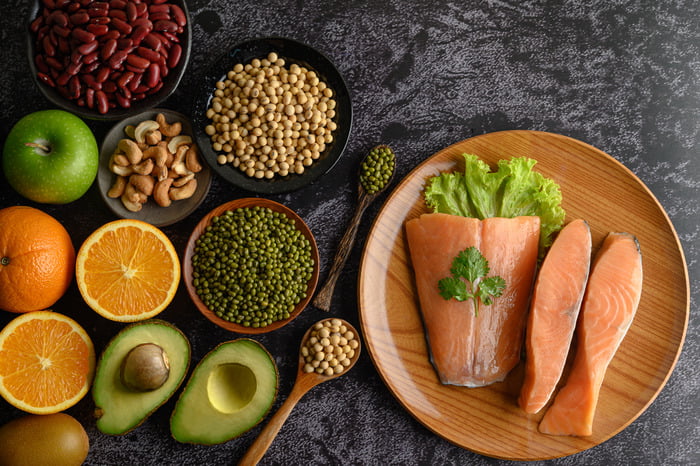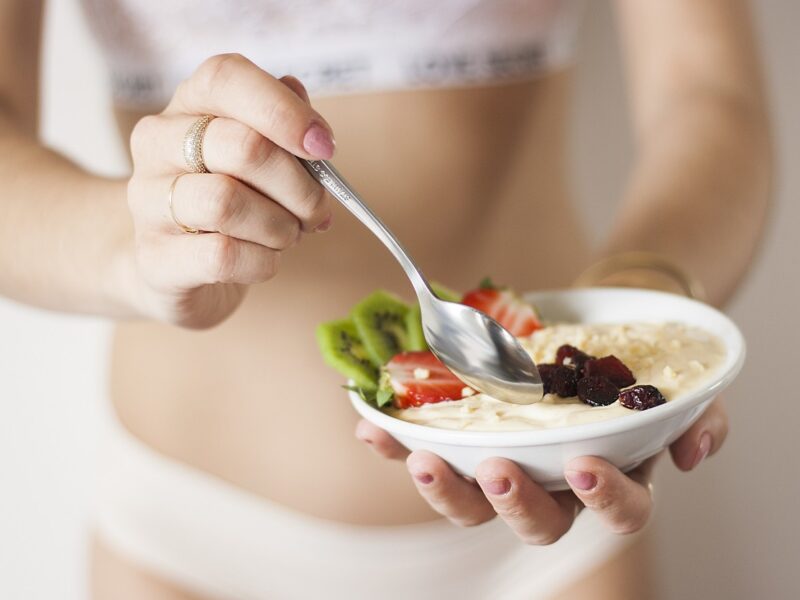Consuming protein shakes at strategic times can enhance their effectiveness. Research suggests that incorporating a protein shake in the morning can help reduce overall daily calorie intake by about 12%, as it promotes feelings of fullness.
Additionally, drinking a protein shake post-workout aids muscle recovery and growth, which is crucial for maintaining a healthy metabolism. Studies show that consuming protein can increase metabolic rate by up to 15-30% compared to 5-10% for carbs and 0-3% for fats.
A study found that women who consumed a high-protein diet, including protein shakes, lost 1.5 times more weight over six months compared to those on a standard protein diet. Timing your protein intake correctly can maximize these benefits, helping you achieve your weight loss goals more efficiently.
Understanding when to drink protein shakes can make a significant difference in your weight loss journey, optimizing your results.
What Is The Best Time To Drink A Protein Shake For Weight Loss?
The best time to drink a protein shake for weight loss can depend on your daily routine and fitness goals, but here are some generally effective times to consider:
In the Morning
Drinking a protein shake can start your metabolism and provide energy for the day. It can also prevent overeating by keeping you full until your next meal.
Before a Workout
Consuming a protein shake about 30 minutes to an hour before exercising can provide a sustainable energy source. This can enhance your performance during workouts and ensure your body has enough nutrients to fuel your exercise, potentially leading to more effective fat-burning.
After a Workout
Post-workout is one of the most critical times to consume protein. A protein shake after exercising helps your muscles recover and rebuild. Since muscle tissue burns more calories than fat, increasing muscle mass can help speed up weight loss and metabolism.
Between Meals
Drinking a protein shake between meals can act as a low-calorie snack that keeps you full and satisfied, preventing unnecessary snacking or overeating at meal times.
Before Bed
A protein shake can be a good option if you find yourself hungry at night. A shake before bed can help manage late-night cravings with a low-calorie alternative, and the protein can assist with overnight muscle recovery and growth.
When Should A Beginner Start Taking Protein?

Fitness beginners can start incorporating protein into their diet right away, focusing on understanding their specific protein needs, which generally range from 1.2 to 2.0 grams per kilogram of body weight per day. Before turning to supplements, it’s essential to evaluate how much protein is consumed through regular meals with meat, dairy, and legumes. Key moments for protein intake include post-workout for muscle repair and evenly throughout the day to support muscle growth.
If dietary sources are insufficient, supplements like whey protein for quick absorption or plant-based options for vegans can be beneficial. Beginners should start with a minor supplement to assess tolerance and avoid digestive issues, gradually adjusting based on workout intensity and physical progress. For faster results, you can simply incorporate protein shakes with intermittent fasting which will eventually speedup your weight loss journey. Consulting with a dietitian or healthcare provider is advisable to customize protein intake according to individual fitness goals and dietary needs.
How Many Protein Shakes A Day For A Woman To Lose Weight?
The number of protein shakes a woman should consume daily for weight loss can vary based on several factors, including her overall diet, activity level, total daily protein requirements, and specific weight loss goals. Here’s a general guideline to consider:
Calculate Daily Protein Needs
Typically, it’s recommended that individuals looking to lose weight and maintain muscle mass consume approximately 1.2 to 2.0 grams of protein per kilogram of body weight per day. For a woman weighing 68 kg (150 lbs), this translates to about 82 to 136 grams of protein per day.Assess Dietary Protein Intake
Before deciding how many protein shakes to include, evaluate how much protein you already get from your regular diet. Protein shakes should complement your diet and not lead to excessive protein intake.Number of Shakes
Generally, one to two protein shakes daily can effectively supplement a woman’s diet without exceeding protein needs. For example:- One Shake: A single protein shake can be a practical addition if you’re slightly short of your protein goals or need a convenient post-workout recovery boost.
- Two Shakes: Two shakes per day might be suitable if you have higher protein needs due to intense training or if meals do not meet your protein requirements.
Caloric Content
Remember that protein shakes contain calories. Ensure that the shakes fit within your daily caloric goals for weight loss. Each shake should ideally replace a meal or snack rather than be added to your normal food intake.Quality of Protein
Choose high-quality protein powders low in sugar and artificial additives. Popular options include whey, casein, and plant-based proteins like peas or hemp.Monitor Your Body’s Response
Adjust the number of shakes based on how your body responds, your progress towards your weight loss goals, and any dietary advice from a nutritionist or healthcare provider.Does Protein Burn Fat Without Exercise?
Protein can indirectly support fat loss through several mechanisms but doesn’t directly burn fat by itself. Here’s how protein can assist in fat loss, even if you’re not exercising actively:
Boosts Metabolism
Eating protein can slightly increase your metabolism because your body uses more energy to digest protein than carbohydrates or fats. This process, known as the thermic effect of food (TEF), means you burn more calories processing protein.Reduces Appetite
Protein is more filling than other macronutrients, which can help you feel full longer. This can lead to a naturally reduced calorie intake over the day because you might snack less and eat smaller portions.Maintaining Muscle Mass
When you lose weight, especially without exercising, your body might lose muscle and fat. Protein helps preserve muscle mass, which is important because muscle burns more calories than fat. Maintaining muscle mass can help prevent your metabolic rate from dropping, a common side effect of dieting.While protein is beneficial, it’s not a magic solution for fat loss, especially without exercise. Exercise, particularly strength training, complements the effects of protein on muscle maintenance and metabolism. Moreover, total calorie intake and overall diet quality are crucial for weight loss. Therefore, while protein helps, incorporating some form of physical activity and managing overall calories will provide better results in achieving fat loss.
Conclusion: Is A Protein Shake Good For Females Who Want To Lose Weight?
For optimal results, protein shakes should be part of a balanced diet and combined with regular physical activity. Select high-quality shakes that are low in added sugars and unnecessary additives. Consulting a healthcare provider or nutritionist can also provide personalized recommendations, ensuring that protein shakes effectively support your diet and fitness goals in a healthy, balanced way.





